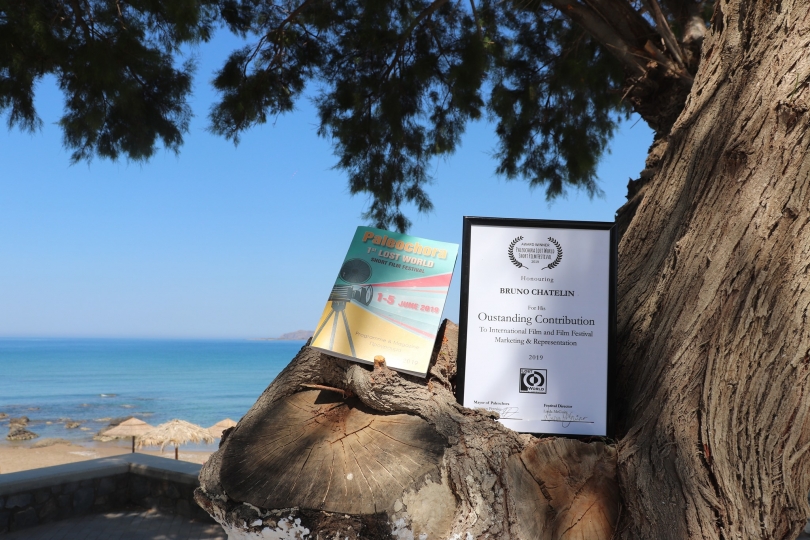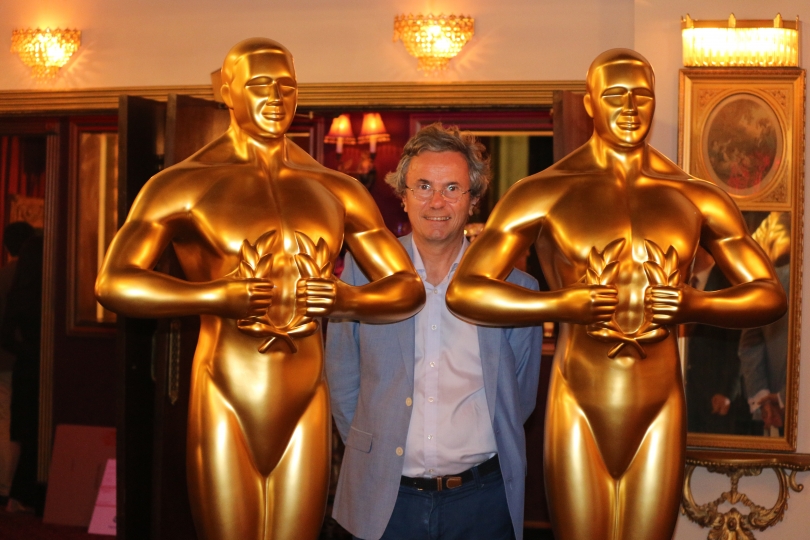The organizers at Vancouver’s International Film Festival were rightly pleased as they wrapped up. The Festival has generated enormous public interest and, in particular, put the spotlight on some deserving films. The audience award went to ‘The lives of others’, Florian Henckel von Donnersmarck’s thriller about surveillance in the former East Germany, and Vancouver’s very own Douglas Coupland-scripted ‘Everything’s Gone Green’ scooped the Western Canada Feature Film Award. Even the weather played ball: it only started to rain on Saturday.
The quality of programming at the festival has indeed been impressive. There were excellent films in every section and very few duds. One thing is striking, though: arguably, the section featuring one eminent film-making nation, France, was overall the weakest one. Things were far from bleak: in ‘Friday or Another Day’, it contained a visually and narratively absorbing offering, and other films too had their moments. Yet there was a marked tendency towards the bijou, the decorative, towards nostalgia and strangely tame, unimaginative filmmaking.
It is also fairly inward-looking, focused on France, apparently seeking reassurance in what is to be found there. Here may lie a reason why French film appeared so quiescent: it is looking back, longingly, to the period of prosperity and social stability that ended so surprisingly with the fall of the iron curtain. Conversely, filmmakers from the other side of the former iron curtain provided the best European contributions to the festival, and here it was striking that the lack of nostalgia for the unpleasant past was not matched by optimism regarding present and future. These films presented no brighter tomorrow; no way out, but fascinating, sometimes very humorous musings on how to live in the middle of grim history.
Two very different films stood out from this strong group. The Russian Alexander German’s ‘Garpastum’ is a study of death and survival in the Russian intelligentsia under communisms, dressed up in a strange fable about bourgeois football lovers in pre-revolutionary Leningrad. The Czech Jan Svankmajer’s ‘Lunacy’ is, among many things, a study of how difficult it can be to work out whether it is the lunatics or the doctors who are running the asylum, or even what the difference between the two groups may be.
German’s film is memorable despite one very obvious and one rather subtler weakness. Clearly, for anybody but the most diehard enthusiast, there is too much football in it: however well shot, footage of men running after a ball becomes tedious in a feature film. But maybe the director wanted to give the viewer time to puzzle over the riddle he sets up early on, directing himself unashamedly towards a highly literate audience. Ever after one of the characters drops the best-known line by the poet Anna Ahmatova, the observer is left to muse which characters among the Leningrad Boheme the people in the film are set up to resemble.
Eventually, a starving minor character is identified as the poet Alexander Blok, after uttering the most cruelly funny lines in the entire film. The association with the literary scene gives poignancy to the optimism of the film’s ending. The protagonists believe in their survival, but the viewer knows that the greatest trials lay still ahead of them: the purges of the Stalin years and the famine, brought on by a German siege during the next war, that would kill some of their survivors. Blok would be killed by famine during the civil wars.
The historical associations in the film, though, are also the origin of its one truly jarring note. Reminiscent of Michalkov’s ‘Burnt by the sun’, ‘Garpastum’ descends from its bourgeois near-idyll into horror for ten minutes. The device works, but there is an odd subtext to it: the bandits who cause the horror are very clearly marked out as originating from the Caucasus (like Stalin, and like the present-day Chechen separatists). Given the determination of the present Russian government to blame its victims, especially in Chechnya, for all the horrors of a war that is abusive on both sides, it appears as if German was kow-towing to stereotypes that nothing good ever came out of the Caucasus.
The real reason to watch this film, though, is visual. The long, lingering shots, gradually revealing the relationships between the people they follow, are very, very beautiful. German’s treatment of faces and interiors is equally remarkable, and the film has sex scenes that are funny without being slapstick.
Svankmajer’s ‘Lunacy’ has neither the epic vision nor the pleasant melancholia of ‘Garpastum’. Instead, it offers vistas of severed tongues and slabs of meat moving on their own, a reenactment of scenes from the Marquis de Sade’s writings, an atheist manifesto, and an elaborate and cruel joke on the main character, as well as the viewer. The result is an exhilarating film. Not laugh-out-loud funny, but strangely reassuring precisely because it offers no certainties.
Svankmajer’s evident lack of concern about offending Christian sensibilities is more political, more demonstrative now than it would have been twenty years ago. It is a reminder of the ironies of recent history. On one hand, the insistence that freedom of speech encompasses the right to offend religious sensibilities seems almost retrograde inasmuch as it is an assertion of the liberties once taken by classical surrealists and Dadaists – an acknowledged influence on Svankmajer’s work. On the other, amid ever louder professions of respect for religious sensibilities of every kind, it is more radical than ever.
In the work of a director from east of the former iron curtain, the suggestion that the lunatics may have run the asylum more humanely than the experts do when back in charge invites speculation on disillusionment, a decade and a half after then-Czechoslovakia’s ‘Velvet Revolution’. But this film is in no way defeatist. It is bitter, cruel and at the same time nostalgic, and if it has any message, it is one in praise of skepticism towards every sort of relationship, every sort of belief. More than anything else, it is carried by its palpable delight in image-making. Its bizarre humour belongs to a venerable European tradition, drawing on French surrealism as well as the ‘samisdat’ literature of Central Europe under Communism. It is pleasing to see that there is still life in this tradition.
Felicitas Becker

 Chatelin Bruno
Chatelin Bruno 




























